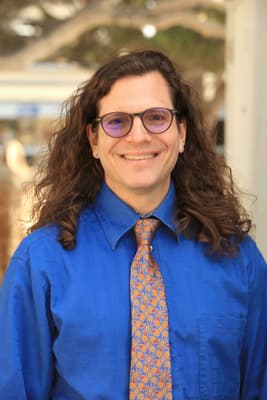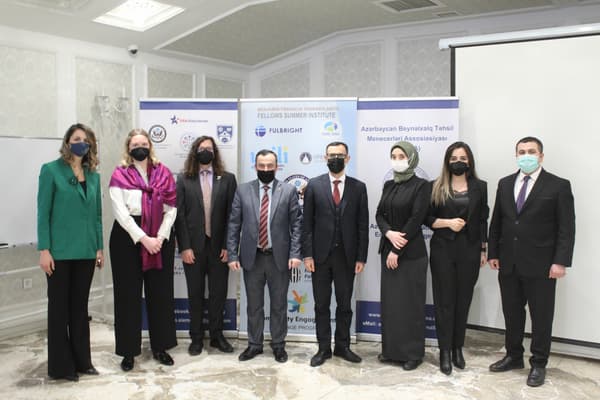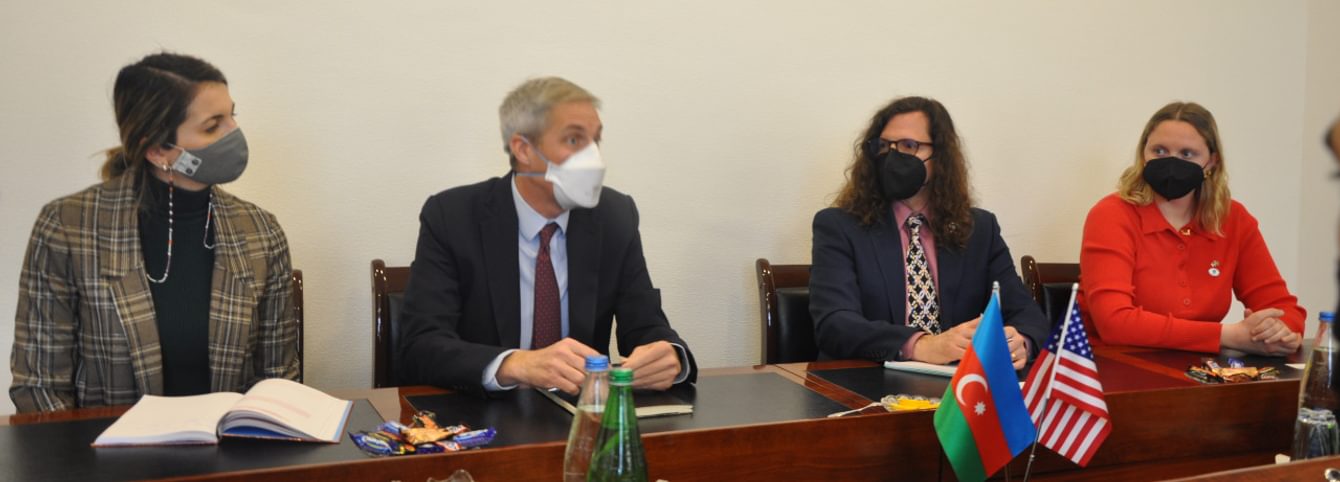
Meet CLS advisor David Wick! David has advised for the CLS Program since its inception over 15 years ago, making him a hall of fame CLS advisor. David began working in international education over 30 years ago and has since led study abroad initiatives at universities throughout the U.S—Santa Clara University, San Francisco State, Arkansas State University, and now, Middlebury Institute in Monterey, California. David has advised for the CLS Program at each institution and served as a reviewer many times, developing an understanding of how CLS can meet the unique needs and goals of students from different backgrounds throughout the U.S.
As Associate Professor and Chair of the International Education Management Program at Middlebury, David teaches graduate courses on student learning and development, program design and assessment, and other topics. David is also the Faculty Director of Fellowships, advising students on CLS and other fellowship and scholarship opportunities. David sees language learning and study abroad as key to broadening student’s worldview and deepening their cultural understanding.
In this interview with Communications Officer Rori DiFiore, David shares how his early experiences shaped his career path and offers advice and insights for fellow advisors gleaned over 15 years of CLS advising.
Rori DiFiore: What piqued your interest in international education?
David Wick: There are two fundamental elements of who I am that drove my interest in this field. One is that from an early age, I met people from around the world through my father’s work. He would invite them to our home, and we’d share a meal together or walk around the neighborhood. It was a chance to hear about their lives and the way they saw the world. And in turn, share a little bit about how we saw the world. Those early experiences contributed greatly to my desire to study languages and be in international education.
The other element is that I’ve always imagined myself as an educator. I watched my parents who were both public school math and science teachers talk about teaching and working with young people. They found it rewarding to be a part of their students’ development and futures. I was interested in how education works and doesn't work for folks, and in seeing what I could contribute.
Over time, the international and multilingual parts of what interested me and the desire to be an educator, came together in international education. As I'm sure you hear from many advisors, I didn't grow up reading storybooks about amazing international educators. But I did know I wanted a future in which I could help others make connections, learn languages, and challenge their worldview.
RD: What study abroad and language learning experiences have been formative in your life?
DW: My first study abroad experience was when I was twelve years old. I spent a month in a homestay in Guadalajara, Mexico. I learned so much about myself. As a twelve-year-old in Minnesota, I shoveled walkways in the winter and mowed lawns in the summer to save for something. When the opportunity for language and culture immersion came, I took it. I had been inspired by the people I met from different countries, and the fact that they went to the effort to learn my language. I wanted to reciprocate.
From there, I had many other international experiences. I spent another month in Mexico in seventh grade. I spent a year of high school in France. And in college, I studied French and German and studied abroad in Germany and Austria. I learned Hungarian later while teaching in Hungary after college. Since then, I’ve had opportunities to lecture and lead workshops in Azerbaijan, the Republic of Georgia, Hong Kong, Spain, Sweden, and Turkey.

RD: What makes you passionate about advising for the CLS Program?
DW: CLS is a very well-designed language and culture learning experience that connects to languages that are less commonly taught, and for which there are not as many opportunities to study abroad. Every institution I’ve served as a CLS advisor has had different needs but, fundamentally, CLS broadens a university’s language and international study portfolio. It brightens up the parts of the world where students can engage meaningfully and in ways that are reciprocal. CLS fits within my value system for what education abroad can and should be. Students who have interests in other parts of the world invest time and energy in language and culture learning and gain meaningful, intensive experience and relationships in that part of the world.
RD: What does the CLS Program mean to students at Middlebury?
DW: Middlebury Institute is a graduate institution. Half of our programs are translation interpretation, and the other half are global policy related. In all our degree programs, there is an international focus. Almost all our students come with significant international experience, often in nontraditional or non-commonly known parts of the world. Many have already identified that global engagement and honing intercultural knowledge will be key to their careers. CLS allows a Middlebury Institute student to focus on a part of the world, a group of people, a place where something meaningful in their discipline is happening. My students use CLS to gain the knowledge, skill, and experience they need to engage more meaningfully. The language and cultural knowledge they gain from CLS becomes a toolset they can use to work interculturally toward positive change. So, CLS is a vital part of a student’s learning process, not a goal in and of itself.
RD: What’s your approach to student advising?
DW: I begin by having a conversation with a student to understand who they are and what goals they have. Together, we work to shape their goals further, or even think beyond the goals that they've imagined for themselves. That's particularly important in cases where students may have had bad experiences with schooling. The role of a fellowship advisor is really to listen and imagine with the student. We have conversations about who they are, and the impact they want to have on the world, and then identify the knowledge and skills that will allow them to do that.
Also, when advising students about this program, I make it clear that CLS is about language learning. I make sure students know of a vast array of other language learning opportunities available to them. I tell them, if you are convinced that you need these skills, you need to be ready to find a way whether you're successful with CLS or not. Now that you know how to apply for a scholarship, here are six more to consider and go after. Our role as educators is to give students many different pathways to the future they envision.
RD: What advice do you have for fellow CLS advisors on advising students?
DW: First, it's essential that students understand that CLS is a federally funded program, they are asking every U.S. taxpayer to give them this opportunity. That connection is very important. I tell students to respond to the essays as if they are telling their friends, family, classmates, someone at the grocery store, why they should pay for them to have this experience. It makes it personal and leads to deeper introspection about the value and potential impact.
Second, students often get caught up on the topic of competitiveness. What should I apply for based on my chances? Our job is to guide students to pursue what is most authentically relevant to them. It’s important for them to tap into their knowledge, and their emotions to see what opportunity is most in alignment with their interests and values. Which opportunity makes them most proud and excited?
Sometimes they think they have a duty to continue with Russian and apply for that. But Azerbaijani is the language they’ve always wanted to learn, the one that excites them and makes their heartbeat faster. That’s the language they will tell a more compelling narrative for and be more successful learning. That’s what they should go for. Even if it’s the more competitive opportunity.
Our work goes beyond helping someone be successful with one application, it must be about helping folks know themselves, their strengths, and their values. And always centered on that. Whether they're successful or not, they'll be successful at being true to themselves. And that can only be a good thing.
Advisor Chat was created to highlight the perspectives of our advisors and showcase the important work they do to make the CLS Program possible. Are you a CLS advisor who would like to be featured in an upcoming Advisor Chat? Email Communications Officer, Rori DiFiore at clsadvisors@americancouncils.org


